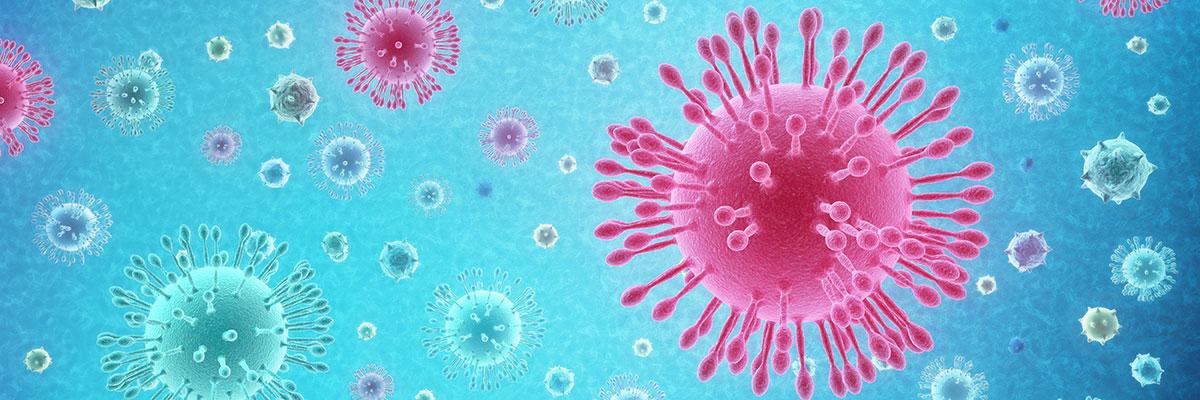

Coronavirus Update: House Passes the Families First Coronavirus Response Act (H.R. 6201)
March 14, 2020 — Bill includes requirements on public and private health care programs to cover COVID-19 testing at no cost to patients; increase in Medicaid funding.
The House of Representatives today passed the Families First Coronavirus Response Act (H.R. 6201) in response to the novel coronavirus (COVID-19) outbreak. The Senate is expected to take it up soon.
The legislation would eliminate patient cost-sharing for COVID-19 testing and related services, establish an emergency paid leave program, and expand unemployment and nutrition assistance. Moreover, the bill would provide a temporary increase in the Medicaid Federal Medical Assistance Percentage (FMAP), enable states to apply for temporary waivers to cover COVID-19 testing for the uninsured through the Medicaid program, and provide $1 billion in testing for the uninsured. Unlike an earlier version of the bill, as urged by the AHA, it does not make any changes to the Occupational Safety and Health Administration standards for hospitals.
Highlights of Provisions Important to Hospitals and Health Systems
No Cost-sharing for COVID-19 Testing and Testing-related Services. The legislation would prohibit cost-sharing for COVID-19 testing and testing-related services for most forms of coverage. These include Medicare Part B, the Defense Health Program, Medicaid, Children’s Health Insurance Program, Indian Health Service, group health plan, individual and other group health coverage, Tricare, Veterans Affairs Health Care and Federal Employee Health Benefit Program enrollees. Cost-sharing is defined as deductibles, copayments and coinsurance. Testing and testing-related services include in vitro diagnostic products approved by the Food and Drug Administration, heath care provider office visits, urgent care center visits and emergency department visits that result in an order for or administration of testing. A further list of services is specified for Medicare patients, including nursing facility services; home services; and domiciliary, rest home and custodial care services. The prohibition on cost-sharing in all instances would apply for the duration of the emergency period.
For the Medicare program specifically, the waiver of cost-sharing applies to services paid under the outpatient prospective payment system, the physician fee schedule, federally qualified health center payment system, critical access hospital outpatient payment system, and the rural health center payment system. The Department of Health and Human Services Secretary would be required to create a modifier for providers to use to identify testing-related services when billing Medicare.
Further, small and large group health plans, individual market plans and Medicare Advantage plans would not be permitted to apply prior authorization requirements or any other utilization management requirements. The legislation is silent on how plans must reimburse providers with the exception of the Medicare program, which would be required to reimburse providers the full payment amount.
Temporary Increase in Federal Medical Assistance Percentages (FMAP) for Medicaid; Increased Allotments for Territories. The legislation would temporarily increase federal Medicaid funds to states and territories by increasing the FMAP percentage for each state and territory by 6.2%. The period for the increase would begin in the calendar quarter of the emergency period and end in the quarter when the emergency period ends. States would be required to meet certain conditions to receive the FMAP increase including:
- Maintaining eligibility requirements no more restrictive than the eligibility standards and methodologies in place as of Jan. 1, 2020;
- Maintaining premium amounts that do not exceed those in place as of Jan. 1, 2020;
- Limiting enrollment denials during the emergency period;
- Providing coverage without cost-sharing for COVID-19 testing and testing-related services during the emergency period; and
- Limiting periodic income checks and eligibility redeterminations to once every 12 months.
The FMAP increase would not apply to some current categories receiving enhanced federal funds, such as the adult expansion populations.
In addition, the legislation provides for an increase in the Medicaid allotments for Puerto Rico, the Virgin Islands, Guam and American Samoa.
State Option to Provide Coverage for the Uninsured. The legislation would authorize the HHS Secretary to approve state waivers under Section 1135(g) of the Social Security Act to cover testing and testing-related services for the uninsured on a temporary basis during any portion of the emergency period. For purposes of this section, an “uninsured” individual is one who is not enrolled in a federal health care program, or group or individual market coverage. States would receive 100% federal match for these populations and services.
Funding for Testing and Related Services for the Uninsured. The legislation would provide $1 billion for the Public Health Social Services Emergency Fund to cover COVID-19 testing and related services provided to uninsured individuals. The bill defines an uninsured individual as one who is NOT enrolled in a federal health care program or a plan on the group or individual market.
Treatment of Personal Respiratory Protective Devices as Covered Countermeasures. The proposed legislation includes language that would recognize personal respiratory protective devices as covered countermeasures in response to the declared COVID-19 public health emergency. Specifically, the bill would authorize the use of certain personal respiratory protective devices that are National Institute for Occupational Safety and Health approved, subject to an emergency use authorization issued by the HHS Secretary and used between Jan. 27, 2020 and Oct. 1, 2024 in response to the COVID-19 public health emergency.
Further Questions
If you have questions, please contact AHA at 800-424-4301.
Key Takeaways
Among other health care-related provisions, the package includes:
- Requirements for public and private health care programs to cover COVID-19 diagnostic testing and related services at no cost to patients.
- A new option for states to expand limited Medicaid eligibility to the uninsured for the purpose of COVID-19 testing and related services.
- $1 billion for the Public Health Social Services Emergency Fund to cover costs associated with testing and related services for the uninsured.
- A 6.2% increase to Medicaid FMAP during the COVID-19 emergency.

